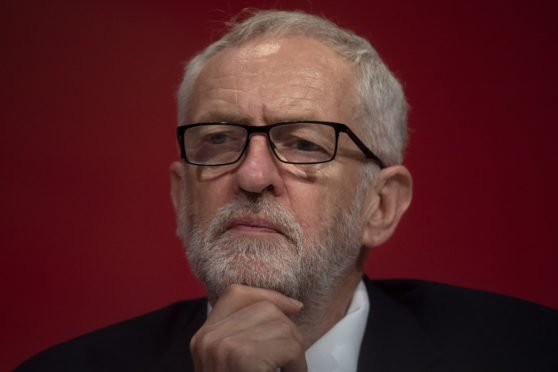Nigel Farage’s U-turn on Monday, in which he agreed to stand down hundreds of his Brexit Party candidates in Conservative seats, will be seen by Scottish Nationalists as a boost to their campaign.
Nicola Sturgeon said Boris Johnson’s Tories were now effectively the Brexit Party, but she could barely conceal her joy.
Already, her job of winning over borderline supporters to the SNP had been made easier with Johnson in Number 10.
His gung-ho approach to a no-deal Brexit and his alienating (for many Scots) privileged background and plummy tones are gifts to the Nationalists, fighting on a pro-Remain, far Left and often anti-English platform.
Factor in the exit of the Scottish Tory leader, Ruth Davidson, who had significantly broadened the Conservatives’ base north of the border, and SNP hopes of winning back most of the seats they lost in the 2017 general election looked realistic.
Now that Farage has decided, after all, to not contest 317 Tory-held constituencies, and only fight marginals where his Brexit ultras have a chance of success, a Johnson victory becomes more likely.
The move will not have much of a direct impact on Scotland, where Farage’s appeal has been limited – although voters here did elect one Brexit Party MEP, reflecting some Leave sympathies in a predominantly pro-Remain electorate.
But Farage’s ploy helps the Nationalists nonetheless, as it removes doubts in hard Leavers’ minds about Johnson’s Brexit deal, which now has the endorsement of the Leaver-in-chief.
This makes the Tories seem toxic again in Scotland. Sturgeon can argue, as she was quick to do, that the Conservatives are increasingly extreme and only the SNP can prevent Johnson securing an overall majority.
However, when it comes to election pacts, the SNP has one of its own and voters should be under no illusions that a vote for the Nationalists on December 12 risks handing the Downing Street keys to Jeremy Corbyn.
Latest polling still confirms Corbyn as the underdog. An Opinium survey (for the Observer) showed Labour closing the gap on the Tories nationwide – at 29% compared to the Conservatives at 41%.
But an ICM poll put support for the Conservatives up one point to 39% while Labour stayed on 31%.
These were all before the Farage announcement but the prospects of an outright Labour win appear slim to non-existent.
But given the volatility of this election – with the realignment of swathes of voters into pro and anti-Brexit positions, and the growing tendency towards tactical voting – it is quite possible that there will be a hung parliament.
If, as expected, the SNP does well, the Nationalists at Westminster could hold the balance of power. Sturgeon has pledged to back a minority Labour government in exchange for the promise of a second independence referendum.
Corbyn has indicated that he will not block indyref2, which Sturgeon wants to hold as early as next year.
There are other demands from the Nationalists, including the scrapping of Britain’s nuclear deterrent and – laughably – plans for an SNP bill to protect the NHS; this from the party that has presided over the disintegration of Scotland’s health system.
Voters in Scotland have turned against Labour, a drift that preceded Brexit but which has escalated in the face of Corbyn’s prevarications over Europe. A YouGov poll last week put the party in fourth place here.
Do Scots really want this party and this man in government? The electorate must go to the polling booths with eyes wide open and not be duped by Sturgeon’s opportunism.
She would underwrite any party that furthers her cause, even Corbyn’s Labour, which is an embarrassment to its own people, who are leaving in disgust at its ugly attitudes on race.
Former Labour MP, and Gordon Brown’s right-hand man, Ian Austin accused the Labour leader of creating a “culture of extremism, anti-Semitism and intolerance”.
Austin, a lifelong Labour man, is urging voters to give Johnson a majority so that the SNP cannot prop up a Corbyn administration.
Tom Watson, the deputy Labour leader who has just quit politics, also constantly clashed with Corbyn over his handling of the party’s treatment of Jews.
Is this how low the SNP is prepared to stoop in pursuit of independence? So much for a progressive Scotland.
Sturgeon’s love-in with Labour exposes her brand of nationalism for what it is: not the enlightened movement of fairness and equality she would have us believe but a quest for separation at any cost, even if that cost is Corbyn.
